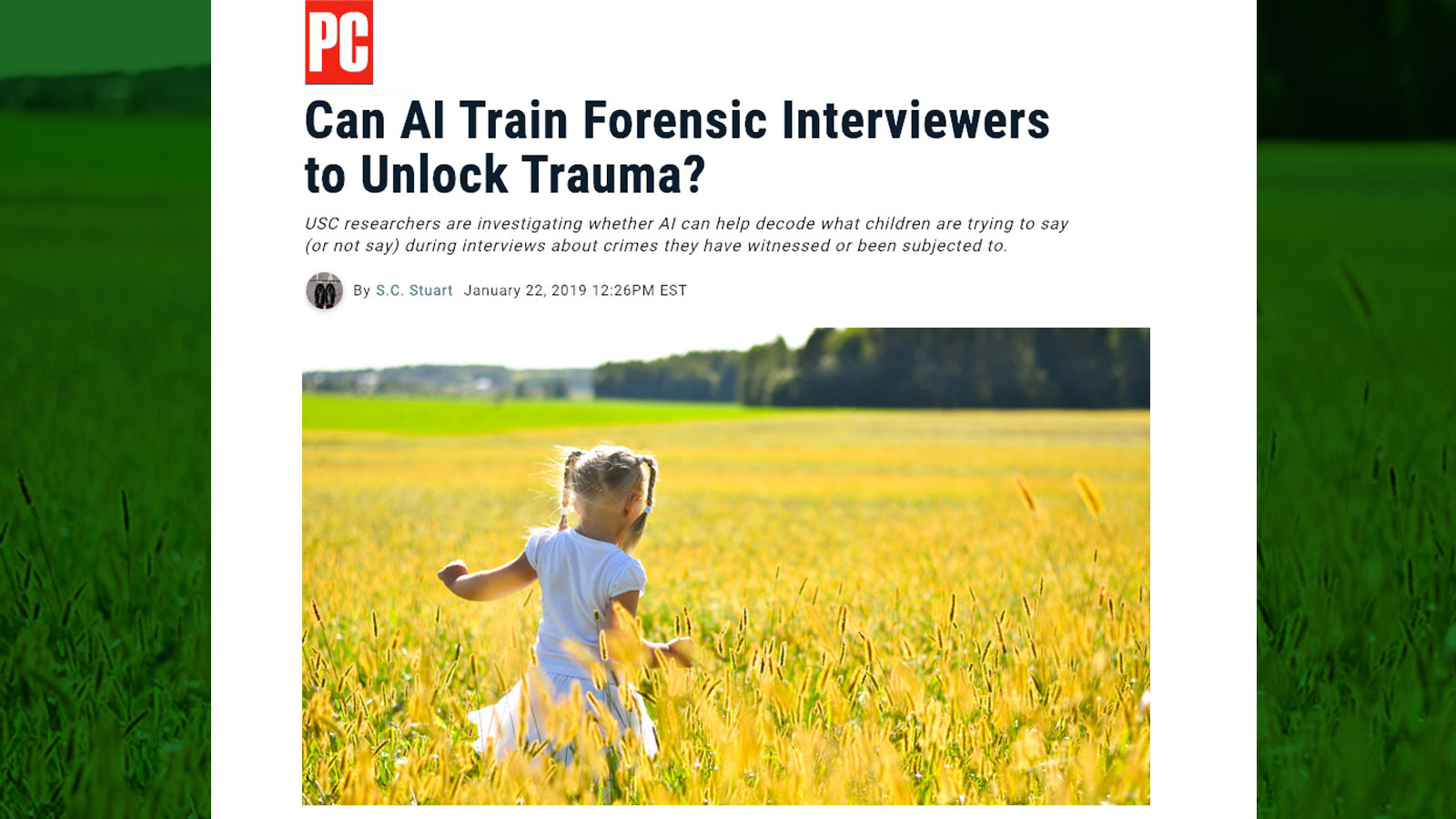
Can AI unlock children’s emotions during forensic interviews?
Dr. Shri Narayanan, founder of USC’s Signal Analysis and Interpretation Laboratory (SAIL) and co-founder of Behavioral Signals, discusses about his collaborative research on how AI can provide valuable insights into a child’s mental state, by analyzing signals, which a person, unfamiliar to the child, might well miss, in such a high stakes situation as forensic interviews. This kind of information is useful during evidence gathering from minors who may have information about a crime under investigation. Understanding children’s emotions, how they say something, and overall mental state is crucial considering they may be the direct victims, or have been traumatized by their carers, or are just unable to express what they saw or what has happened to them.
Dr. Narayanan collaborated with his colleague Dr. Lyon who is an expert in this area, working with attorneys and lawyers who interact with victims of maltreatment and abuse. He explains how, in this case, AI is designed to complement human intelligence. While for us humans, when we hear something, it is filtered through our own subjectivity and mental models, “AI is an objective training tool, providing extra insights, giving guidance on how to pace the questions, understanding how the mind works, picking up on cognitive and affective aspects from the behavioral cues and suggesting potential hypothesis. We’re suggesting our AI is used to train interviewers to build up better skills in these situations; developing more open questioning methods and, in effect, bringing more reproducible analytics in what is very much a subjective realm today.”


